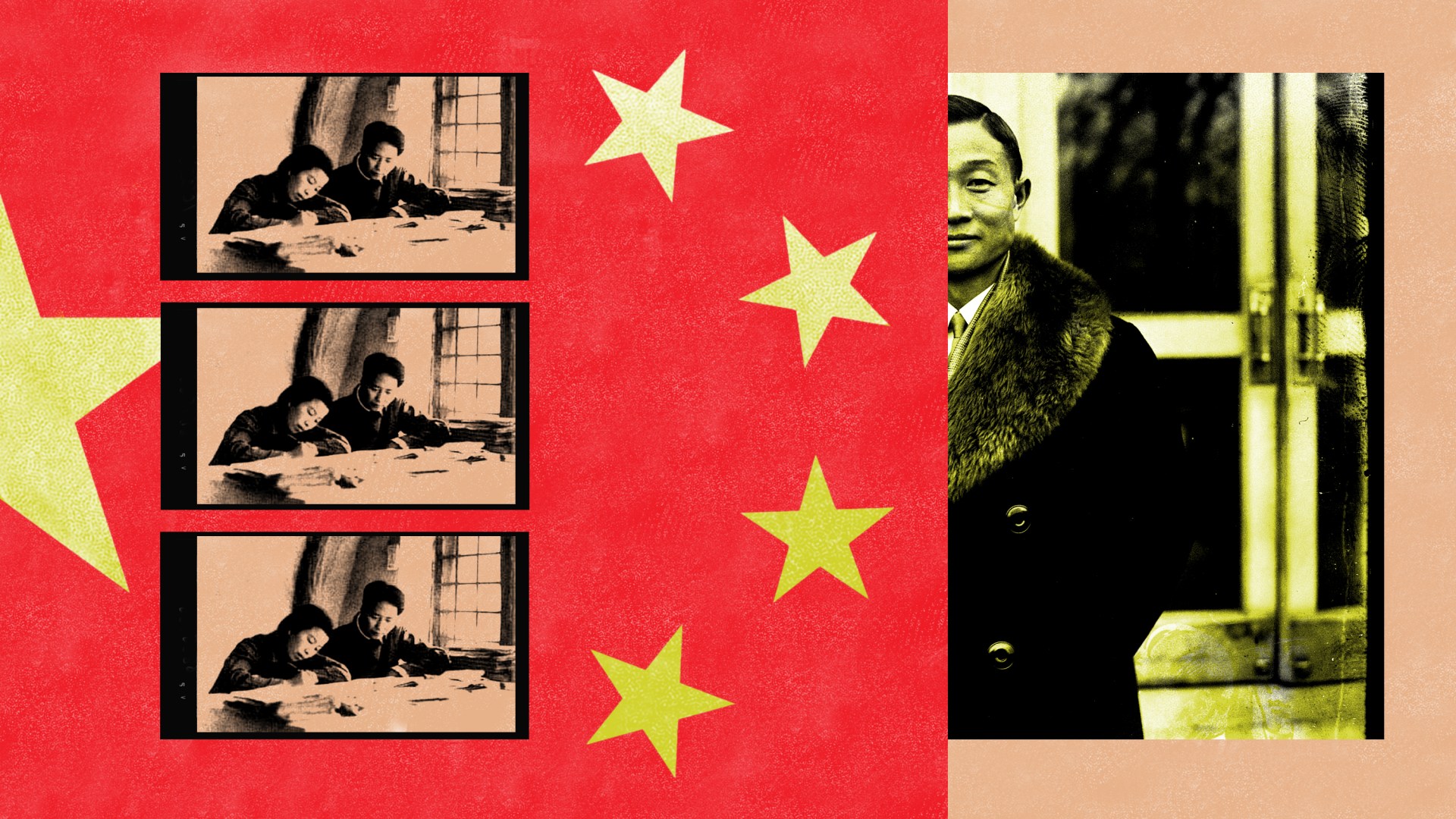Questions of bishops stirred controversy in Costa Rica. Amid the joy of the convening General Conference of the Global Methodist Church as the new denomination ratified and modified the provisional decisions of its transitional leadership, the episcopacy emerged as the one issue that could rouse serious disagreement.
Who would be in charge of the new church? How many bishops would there be? How would they be elected, and how long would they serve? What would they do, specifically? How would the power and authority of the position be limited?
“There is a very collaborative spirit, but people have disagreements,” Asbury University professor Suzanne Nicholson told CT. “It’s always messy when you start something new.”
The Global Methodists debated the shape of the authority structure they would erect over themselves while they were in the process of figuring out and applying the lessons they learned from decades spent fighting in the United Methodist Church. There were, of course, theological and ideological reasons for their split. But for many of the people who left, the real problem, the deeper problem—the intractable, unresolvable, deeply frustrating, and hurtful problem—was the bishops.
The bishops didn’t defend orthodoxy, Global Methodist ministers told Christianity Today. They didn’t maintain order or unity. They didn’t seem to be in touch with the concerns of congregations or to care about small, struggling churches, and they used their power to punish ministers they saw as troublesome (or just conservative).
Many ministers have stories about being exiled. And far-flung rural churches with 20, 30, 50 people attending regularly recount with pain their realization that they were the places of exile—assigned only ministers who were being punished by the appointment.
United Methodist leaders see all this very differently, of course. And those who stayed in the denomination can offer alternative accounts of what happened.
But among those who left, there is a consensus: It was bad. And it was bad because of the bishops.
The new denomination, meeting for the first time, desperately wanted to avoid any possibility of repeating those mistakes. They debated the way to shape and structure the episcopacy to ensure better leadership.
The goal—everyone who spoke to CT agreed—was to set up an episcopal structure where the bishops are not bureaucrats responsible for administration of an institution, but shepherds fending off wolves and leading the church into green pastures.
“The main thing was an episcopacy that focused on teaching and preserving the faith,” said David Watson, New Testament professor at United Theological Seminary and lead editor at Firebrand. “We wanted to reshape the office for theology. If we don’t do that and there’s not something specific in Methodism we want to preserve, we’ve all wasted a lot of time and money.”
The Global Methodists built on other broad agreements as well. There was no debate about whether bishops ought to belong to a separate order of clergy, the way they do in the Roman Catholic Church and the Anglican communion. The Methodists see bishops and other ministers filling distinct roles but sharing the same ordination.
The General Conference legislation stating the episcopacy is not a separate order passed 315 to 3.
There was also broad consensus that the role should be temporary. The Global Methodists don’t want people to be bishops for life. The delegates in Costa Rica decided instead that bishops would serve six-year terms and would be limited to two terms.
“The fail-safe is term limits,” Watson said. “That’s very popular.”
But delegates did disagree about other things. One group proposed that each region of Global Methodists, which is called an annual conference, should have its own bishop. Others objected that would give the bishops too many day-to-day administrative responsibilities and they’d end up running the denomination in their region. They suggested that job be given to a general superintendent hired by the region, while bishops took responsibility for preaching and teaching in four, five, or even six regions at once.
Responsibility for a broader area would also promote more connections between Global Methodists, advocates for that plan said.
One person proposed an itineracy system as another alternative: assigning bishops to one region at a time but then rotating assignments annually.
Matthew Sichel, a deacon from Maryland, pointed to the Methodist history of circuit riding. He said the new denomination should bring that model back in its episcopal structure.
“Itinerancy is a gift to Methodists,” he told the delegates during the debate. “It gives you a chance to see God work through leaders you would never have known.”
The proposal was overwhelmingly rejected by delegates. The General Conference ultimately decided to support what they called the General Episcopacy Plan. Bishops will not be responsible for administration but will be tasked with spiritual leadership. They will be over the whole church but divvy up regions between themselves, each taking about five annual conferences.
Sichel said he didn’t like that plan, but losing the vote didn’t bother him at all.
“These are not essential issues,” he told CT. “I’m willing to trust the General Conference.”
Rob Renfroe, president and publisher of Good News, the leading evangelical Methodist magazine, said he heard that sentiment a lot at the Global Methodist gathering. People would articulate their preferences but acknowledge disagreements and submit the issue to the discernment of the delegates.
“This is holy conferencing,” he said. “We agree on the bedrock theological issues. Jesus is Lord, Scripture is authoritative, and we want to reclaim our Wesleyan heritage. So we can trust the General Conference.”
Delegates also said they knew that they would have the opportunity to tinker with the authority structure in the future. They worried about the unintended consequences of the decisions they were making in Costa Rica but took comfort in the wisdom of delegates to come.
“The bishop thing is a work in progress,” said Jeff Kelley, pastor of a church in Nebraska. “I don’t think that this conference will settle it. We have to wade in the water.”
Since it is still a work in progress, the General Conference decided not to elect bishops to six-year terms just yet. They started instead with interim bishops who will work part-time and serve for two years.
The delegates spent a lot of time debating the details of the interim episcopacy, wrestling over how those candidates would be nominated and whether or not someone elected to a two-year term could be reelected in 2026. Some expressed concern that if more groups join the Global Methodists in the next two years when all the bishop’s seats are filled, it will be harder for those people to elect a bishop who represented them. The delegates decided that 50 percent of the interim bishops could be reelected but each would have to receive a three-quarters majority vote.
The delegates then nominated more than 20 candidates, all present among the nearly 1,000 delegates and observers in Costa Rica, and started voting.
Delegates elected three candidates on the first ballot: Kimba Evariste from the Democratic Republic of Congo; Carolyn Moore from North Georgia, who preached about Acts 19 the first night of the General Conference; and Leah Hidde-Gregory from the Mid-Texas region. Then a fourth person won an episcopal position: John Pena Auta of Nigeria.
Balloting went on for multiple rounds after that without any names garnering enough votes to win. Ryan Barnett, pastor of First Methodist Church in Waco, Texas, went to a microphone and withdrew his name with praise for Hidde-Greggory, calling her the best Texas had to offer.
Then other candidates—mostly white men—started streaming forward to withdraw their names too.
“I thank God for the move of the Spirit,” said Stephen Martyn, professor of Christian spirituality at Asbury Theological Seminary, after seeing the vote totals for his name drop in three successive rounds of balloting. “It has been obvious. And it is a joy to withdraw my name.”
Other people in the room said they were pleased to not even be nominated. Some of the ministers at the convening General Conference had been accused of joining the Global Methodists just to grab power.
Johnwesley Yohanna, for example, has served as a bishop in Nigeria for 12 years. He had heard rumors that he was maneuvering for a leadership spot in the new denomination and joined not because he was trying to be faithful but because he wanted more authority and thought the new denomination would give him whatever he asked for. He said electing someone else as bishop allowed him to prove his integrity.
“It’s done. I’m done. I kept my word,” Yohanna told CT. “We praise God in everything.”
Delegates elected Jeff Greenway, who served as president pro tempore of the Global Methodist Church during its transition period, as their fifth interim bishop. Finally, Kenneth Livingston, a Black pastor in Houston, was chosen.
The six newly elected bishops joined two men already serving in the episcopal role: Scott Jones, a former United Methodist bishop from East Texas, and Mark Webb, a former United Methodist bishop from Upstate New York.
The final results were greeted by jubilant pandemonium in Costa Rica. The bishops-elect embraced family, friends, and each other, while the nearly 1,000 people in the room sang “Praise God from Whom All Blessings Flow.”
Whatever disagreements they had about the authority structure seemed to melt with the joy as the six men and women filed onto the conference room stage with their spouses for a group photo.
A number of delegates said they were specifically encouraged by the diversity. They said the election showed that the “global” part of Global Methodism was not just a mask for conservative white Americans but a reality. And the new denomination also demonstrated its commitment to egalitarianism and the Wesleyan belief that the Spirit is poured out on “both men and women” (Acts 2:18).
“I’m proud of how that went today,” said Asbury seminary student Emily Allen. “Electing women—that meant a lot to me. And two Africans and a Black American—that sets us on a good path.”
As the Global Methodists rejoiced and praised their newly elected leaders, however, the delegates also found a surprising way to reassert the ultimate authority of the General Conference. Two pastors, Natalie Kay Faust from Nebraska and D. A. Bennett from Oklahoma, came forward with a motion that had not been discussed in any of the debates on episcopal authority, nor in any legislative committee.
“We would like to propose a Bennett-Faust motion, in the spirit of historicity of this celebration,” Bennett said. “Schedule time in the 2026 General Conference of the Global Methodist Church for bishops … to perform a liturgical dance to all 17 verses of ‘O For a Thousand Tongues to Sing.’”
More than dozen delegates shouted, “Second.”
“Can we call them ‘out of order’?” Mark Webb asked Scott Jones.
But Faust pushed on, calling the motion a fitting recognition of the “spirit of honor for one another” among the Global Methodists.
“We have seen how the Spirit can move when we set our own personal pride and barriers aside and open ourselves up to new expressions of his leading,” Faust said. “This motion is encouraging our episcopal leaders to lead by example of Christian submission and connection to the movement of the Spirit.”
Webb said it was out of order, but everyone in the room just laughed at him. Jones said it should be referred to committee, but no one agreed. Delegates, instead, called for a vote.
“Do I have any friends to oppose?” Jones said.
He did not.
The delegates voted by show of hands and the motion passed by an overwhelming majority.
The new denomination will meet again in 2026 and hold its first full episcopal election, picking bishops for six-year terms that will focus on preaching, teaching, and spiritual leadership. And the first bishops of the Global Methodist Church will perform a dance to all 17 verses of the beloved Wesleyan hymn “O For a Thousand Tongues to Sing.”
























































